
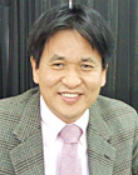
Prof.Hiroshige Tanaka Institute of Economic Research, Chuo University |
Research areas: Public Economics , Environmental Economics
Speech title: Sustainable global communities and the theory of multi stakeholders.
Abstract:The global crises such as financial crises, climate change problems, Covid 19 pandemic could not be solved by global market mechanisms but require to construct a private and public cooperative theme. The sustainable global sociaties need a decentlized communication mechanism to reform market mechanisms. The theory of multi stakeholders fucuses on the sustainable communication scheme in communities. The sustainable social mechanism needs to reform the market mechanism to be responsible for various social needs of multi stakeholders. The digital industrial revolution reforms the feature of communities and raises disruption of societies. To explore the social problems the multi stakeholders are difened to classified into the inside, outside and external stakeholders. This speech explores performances of multi stakeholders to decrease social welfare losses and proposes the initiatives to improve participation of residents on communities and activate regions.
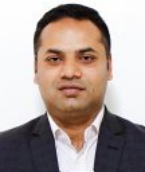
Prof.Muhammad Tayyab Sohail Faculty of Public Administration, Xiangtan University |
Research areas: Environmental Biology, Microbiology, Nutrition, Chinese medicine
Speech title: A logical PLS-SEM Approach to awareness about water quality and associated health risks; the public perspective
Abstract: Water is a basic human need that cannot be replaced. The current study was based on public water quality awareness of water quality in Lahore. A human being is making developing in every field of life and at the same time making environment pollutant. It needs time to have awareness about water quality so that there must be no impact of contaminant water on human health. A questionnaire was developed with the use of existing research on public knowledge of water quality. This research looks at people's understanding of water quality and how it influences their decision to drink safe water frequently. A questionnaire was distributed among people to ask questions related to Public Trust (PT), Public Satisfaction (PS), Public Attention (PA), Health Consciousness (HC), and (AWQ) Awareness about water quality. A total number of 1250 completed questionnaires were collected to analyze the future relationship among DV, IV, Moderator, and control variables with help of PLS-SEM. PLS-SEM direct path analysis revealed that PT (β=0.075; p<0.040), PA (β=-0.007; p<0.000), HC (β=0.283; p<0.000), with AWQ, have statistically significant values of beta (β) while PS (β=0.466; p<0.827) is not significant. These results offer support to hypotheses H1, H3 and H4 accepted while H2 was rejected. We have also looked at the levels of age and education of the respondents as control variables, education (β=-00.43; p<0.022) showed significant relationships with AWQ, and Age (β=-0.037; p<0.068) showed an insignificant relationship with the dependent variable. Gender significantly moderates the relationship between Awareness of water quality associated with Public Trust (PT) and Public Attention. depicts the moderation role of gender on the relationship between PT*Gender -> AWQ, PS*Gender -> AWQ, PA*Gender -> AWQ, and HC*Gender -> AWQ. As per results analysis revealed that PT*Gender -> AWQ (β=-0.077; p<0.031), PS*Gender -> AWQ (β=-0.027; p<0.582), PA*Gender -> AWQ (β=-0.071; p<0.031) and HC*Gender -> AWQ (β=0.270; p<0.894). Under this research H1a and H3a have significant relationships with gender as a moderator while H2a and H4a did not show any relationship with the moderator. To ensure the long-term success of water plants, comprehensive management is essential. Public satisfaction can be raised by making the public aware of the significant relevance and importance of water quality in annual government reports via local social media, print media, and television.
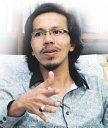
Prof.Dr. Haris Abd Wahab Department of Social Administration and Justice ,University Malaya |
Research areas: Community Development, Community Organization, Human Development,
Speech title:Breaking down the Role of Community Development Researchers from a Concepirical (Conceptual + empirical) Reflection
Abstract: This article explains how a community development researcher may contribute to society. Taking reflection on the Rakhain community of Bangladesh and over 20 years of ethnographic career, other marginal people, and leading texts, we feel that the concept of reciprocity suffers from the diversity that is synonymous with abstract jargon, in effect failing to provide guidelines for the novice, and education policy too. Reciprocity holds Past-Present-Future in Revealing-Reporting-Reflecting with Connection with -Contribution to-Collaboration. Briefly, Reciprocity is the core of social studies, beyond academia. Reciprocity is all-encompassing. Our proposal is that A reciprocal research ascribes four wings: as a spirit to research, as an Ihsanic (perfectionist, sincerest) notion of activities instead of social justice and a means to knowledge-democracy, and volunteerism clarifies the many nuances of exercise. One, it demands ‘connectivity’ with the cosmic totality, which we call spirit. It reveals the Indigenous history and oppression; it rewrites the history for re-righting the land, and language as the spirit of self and social scientists. It is ‘contributing’ as reporting with and within the present people’s physical, social, psychological, and spiritual healing individual and collective by the people’s knowledge, as knowledge democracy. Three, ‘collaborates’ with a reflection of past and present for decolonizing political, social, academic, and colonial fabrication for ensuring rights as an Ihsan: good deeds for the good deed, good acts for good acts. Reciprocity is then a call for volunteering, which is well-congruence with Aristotelian Phronesis, Al-Farabian Intellectual Happiness, and Buddha’s Enlightenment. Therefore, reciprocity is all about transformation in terms of social, political, economic, and spiritual. This presentation takes a practical philosophical position, rooted to Aristotle, in narratives, analysis, and Indigenous Gnoesleogy as a method of knowledge gathering to compile these wings. This paper has three sections: First section demonstrates the philosophical root of reciprocity. The second section takes the Methodological positionality, and then the final parts stand with four wings.
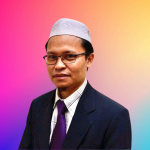
Associate Professor Dr. Sulong, Jasni DeanSchool of Humanities ,University Sains Malaysia |
Research areas:Islamic inheritance, wills and property distribution
Speech title: Co-Ownership in the Felda’s Property: A Study on Innovations and Family Engagement in the Islamic Asset Management
Abstract: Co-ownership is the state of possessing something jointly with others. This joint ownership can lead to conflict if the joint owners do not agree in developing the property. This conflict will drag on years and become more problematic when the initial owner dies. If they are not developed or well-managed, it will affect beneficiaries of the property as well as the property-value. Under the Islamic law, such ownership has guidelines and cannot be transacted arbitrarily without the permission of other co-owners. The matter was discussed under ruqba, syarikah and waqf. In Malaysia, the problem of co -ownership is very common in the case of FELDA’s land ownership. The FELDA’s statute restricts the transmission of property to two nominees only. The constraint in some cases has triggered the property to become unproductive, not economic and challenging to utilize. Therefore, the study was conducted qualitatively by using muamalat theories, statute of laws, local practices and the experiences of selected Islamic countries. Therefore, the study is at aim to provide guidance to co-owners in managing their properties well. Since allocation restrictions have been imposed by law, the management methods need to be scrutinized deeply. Agency -based meetings, establishment of family foundations, company formation, family waqf and full transfers can be initiated to safeguard the asset and give benefit to owners.
oral speaker:
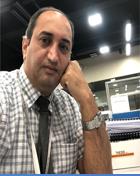
Assis.Prof.Saeid Motevalli Faculty of Social Sciences & Liberal Arts, UCSI University, Malaysia |
Research areas:Education, Cognitive Science, Cognitive Psychology, Learning, Drug Abuse Treatment and Prevention (inschools, universities and public)
Speech title:The Role of Culture on Climate Change and Sustainable Development
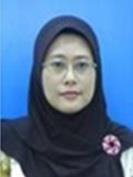
Dr.Seriaznita binti Haji Mat Said Language Academy, Faculty of Social Sciences and HumanitiesUniversiti Teknologi Malaysia |
Research areas:TESL, Curriculum Planning, LSP, Cognitive Apprenticeship
Speech title:Conceptualizing an Integrated Grammatical Aptitude ESL Learning Model for Engineering Students